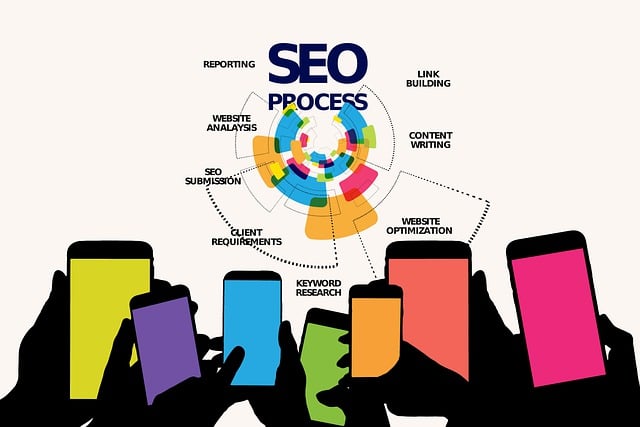The Digital Marketing Summit is a pivotal event highlighting the central role of data analytics in modern business success. Marketers gain access to advanced tools and insights on leveraging data for informed decision-making, personalized campaigns, and real-time optimization. The summit showcases innovative strategies like predictive modeling, customer journey mapping, and ethical data handling practices. Attendees learn how data visualization, machine learning, and alternative data sources drive growth, enhance experiences, and maintain a competitive edge in the dynamic digital landscape.
“Welcome to the annual Data & Analytics Conference, where industry leaders and innovators gather to explore the cutting-edge of digital marketing strategies. In this comprehensive guide, we delve into the transformative power of data in modern business. From unlocking the potential of digital marketing techniques to navigating ethical considerations, we cover it all.
Join us as we analyze case studies, discover advanced tools, and discuss the future trends shaping the Digital Marketing Summit landscape.”
Digital Marketing Strategies: Unlocking the Power of Data

In today’s digital era, data is revolutionizing every aspect of business, and Digital Marketing Strategies are no exception. The Digital Marketing Summit serves as a catalyst for this transformation by gathering industry experts to share insights on leveraging data effectively. Here, marketers uncover the secrets to unlocking consumer behavior patterns hidden within vast datasets, enabling them to create tailored campaigns that resonate with their audience.
Through advanced analytics tools and techniques, professionals can navigate the complex landscape of online marketing. This includes understanding customer journeys across multiple channels, personalizing content to drive engagement, and measuring the impact of digital initiatives. By embracing data-driven approaches, marketers are better equipped to stay ahead of trends, optimize campaigns in real-time, and ultimately, achieve remarkable results.
The Evolution of Analytics in Modern Business

In today’s digital era, data and analytics have become the backbone of modern business strategies. The Evolution of Analytics in Modern Business showcases how organizations are leveraging advanced technologies to gain insights from vast datasets, enabling them to make informed decisions, enhance customer experiences, and drive growth. The transformation is evident at major events like the Digital Marketing Summit, where industry leaders share groundbreaking trends and innovations in data analytics.
This shift is not just about gathering and analyzing data; it’s about transforming raw information into actionable intelligence. Companies are no longer relying solely on intuitive assumptions or historical data. Instead, they’re embracing predictive analytics, machine learning, and artificial intelligence to anticipate market shifts, personalize marketing campaigns, and optimize operational efficiency. This evolution has positioned businesses to stay agile, adapt to changing consumer behaviors, and maintain a competitive edge in an increasingly dynamic marketplace.
Case Studies: Successful Data-Driven Campaigns

At the Data & Analytics Conference, one of the most anticipated segments is the in-depth exploration of case studies. Attendees get to witness firsthand how leading brands have successfully leveraged data and analytics for their marketing campaigns. These sessions provide valuable insights into the strategic planning, implementation, and measurement behind some of the most impactful digital marketing summit moments.
From personalized customer journeys to predictive analytics, these case studies demonstrate tangible results. Whether it’s increased engagement, improved conversion rates, or enhanced brand loyalty, each study offers a unique perspective on data-driven decision-making. By sharing their experiences, experts in the field inspire attendees to think innovatively about their own marketing strategies and maximize the potential of data in today’s competitive digital landscape.
Ethical Considerations in Data Collection and Usage

As data becomes an increasingly valuable asset in modern business, ethical considerations in data collection and usage have gained significant importance, especially at the forefront of the Digital Marketing Summit. Organizations must ensure they gather and utilize data responsibly, respecting privacy and maintaining transparency with consumers. Unethical data practices can lead to a loss of public trust, regulatory penalties, and reputational damage.
The Digital Marketing Summit provides an ideal platform for industry experts to discuss best practices in ethical data handling. This includes obtaining informed consent from users, ensuring data security through robust encryption and access controls, and being transparent about how personal information is used for marketing purposes. Adhering to these principles not only safeguards individuals’ rights but also fosters a sustainable and trustworthy data ecosystem essential for long-term business success.
Advanced Tools for Efficient Data Analysis

The Digital Marketing Summit has been a game-changer in showcasing advanced tools that are revolutionizing data analysis. With the ever-growing importance of data in modern marketing strategies, this conference has been instrumental in equipping marketers with cutting-edge techniques to make sense of vast datasets. The event highlights sophisticated software and platforms designed to streamline the analysis process, enabling professionals to derive valuable insights efficiently.
Attendees get to explore innovative features such as machine learning algorithms, advanced visualization tools, and automated reporting systems. These technologies empower marketers to navigate complex data landscapes with ease, uncovering trends and patterns that were once difficult to identify. By leveraging these advanced tools, businesses can make data-driven decisions, enhance campaign performance, and ultimately stay ahead in the competitive digital marketing landscape.
Visualizing Data: Making Complex Insights Accessible

In today’s data-driven world, Visualizing Data plays a pivotal role in bridging the gap between complex insights and easy understanding. During the Digital Marketing Summit, experts highlighted the power of data visualization tools to transform raw numbers into meaningful narratives. By presenting data in graphical formats like charts, graphs, and infographics, businesses can communicate trends, patterns, and outliers more effectively to stakeholders who may not be statistics-savvy.
This approach not only simplifies complex information but also stimulates engagement and fosters deeper insights. As the Digital Marketing Summit explored, interactive visualizations enable users to delve into data dynamically, uncovering hidden correlations and gaining competitive edges. With the right tools, marketers can transform data from a daunting task into a captivating story that drives strategic decision-making.
Predictive Analytics: Forecasting Trends and Opportunities

Predictive Analytics, a powerful tool in today’s data-driven landscape, plays a pivotal role at the Data & Analytics Conference. By leveraging historical and current data, businesses can forecast future trends with remarkable accuracy, enabling them to make informed decisions and stay ahead of the competition. This forward-looking approach is particularly relevant in the ever-evolving realm of Digital Marketing Summit, where staying ahead of consumer behavior shifts and market trends is crucial for success.
At the conference, experts will delve into various predictive models and algorithms that can anticipate customer preferences, market fluctuations, and emerging patterns. These insights empower marketing professionals to optimize strategies, personalize campaigns, and enhance overall customer experiences. By embracing Predictive Analytics, businesses have the opportunity to unlock new growth avenues, capitalize on upcoming trends, and solidify their position in a highly competitive digital landscape.
Customer Journey Mapping: Enhancing User Experience

Customer Journey Mapping is a powerful tool that has gained significant traction in recent years, especially at the forefront of digital marketing strategies. By visualizing and analyzing every step a customer takes from initial awareness to post-purchase experiences, businesses can identify key touchpoints and gain valuable insights into user behavior. This strategic approach allows marketers to enhance the overall customer experience, ensuring each interaction is tailored to meet their needs and expectations.
At the Data & Analytics Conference, experts emphasized how mapping these journeys can drive effective decision-making. By understanding customer pain points and emotions at every stage, companies can optimize their Digital Marketing Summit strategies. This includes personalized content, seamless user flows, and targeted campaigns that not only increase engagement but also foster brand loyalty and drive conversions.
Future Trends in Data & Analytics for Marketers

The future of data and analytics in marketing is brimming with exciting possibilities as the Digital Marketing Summit highlights the latest advancements. One prominent trend is the increased focus on real-time analytics, enabling marketers to make instant decisions based on current consumer behavior. With the power of artificial intelligence (AI) and machine learning, brands can predict customer preferences more accurately, ensuring tailored marketing campaigns that drive engagement and conversions.
Additionally, the integration of alternative data sources is gaining traction, offering a wealth of information beyond traditional metrics. This includes social media interactions, location-based insights, and online reviews, providing marketers with a comprehensive view of their target audience. As data continues to evolve as a strategic asset, marketers are equipped to create more personalized and effective campaigns, solidifying their presence in the competitive digital landscape.
